Five Questions with David Tallerman
1) When we first discussed taking your story, we learned that you lived near areas where there had been serious rioting. Have things changed substantially in nearby areas, or have they largely returned to normal?
The honest truth is, I have no idea. I was kind of between addresses at the time, living in hotels in out of the way places, and I hardly ever watch television or listen to the radio, so most of what I heard was after the event and from other people. The biggest riots, the rioting in London, passed me by for a ridiculously long time.
Even then, it was a while before the scale of it sunk in. Just as an example, I found out later that my friend was worried his flat was going to be burned down because it was right in the middle of a trouble spot. If the local community hadn’t gone out and faced off with the rioters, it actually might have been.
So … as far as I know, things are getting back to normal. I actually passed through London yesterday, and I don’t know the city well, but things seemed normal enough. But really, if it wasn’t I’d be the last to hear about it!
2) Many authors seem to focus on one style of fiction, one genre, or even one sub-genre, but your list of publications has an impressive breadth. What has led you to write across a wide variety of genres?
That was definitely a deliberate choice when I was starting out. Because, I know what I’m like, and I’d get bored if I felt I was covering the same ground again and again. If I write a horror story, the last thing I want to do is write another horror story straight afterwards. If I write something slow-paced and thoughtful, I’ll get to the end itching to write an action scene. I read and have affection for a lot of different genres, and I’d be gutted if I thought the fact that I’d written a lot of fantasy stories meant I couldn’t then write, say, a crime novel.
Again, I try hard to fit the style to the story, rather than the other way round. That way, I’m always learning, which is something else that matters a lot to me. The same is true of switching genres regularly. There’s always a new challenge. And more and more, I find myself bringing it all together, writing what I guess you’d call cross-genre fiction.
Of course, looking back it’s easy to see that I’ve made things difficult for myself … probably more than I realised I would. But in terms of where I am now, the fact that I’ve had success in different genres, the degree of freedom that’s come with that – I feel like it’s been worth the extra effort.
3) You have written a large number of reviews of movies and some book & music reviews. What effects do you feel that your close examination of so much media has had on your work?
The reviews themselves, I suspect, not so much – although the long series of film reviews I did for Son and Foe taught me a huge amount about self-editing and the value of brevity. But the fact that I love films, music and comics just as much as I do books is, I think, a massive influence on how and what I write. That’s really been sinking in this year. Along with the new novel, Crown Thief, and a few short stories, I’ve written a poem, comic books scripts, film screenplays – actually, a short film I co-wrote just came away with a load of awards in the Two Days Later competition.
It’s been a lot of fun to be able to do things like that, and to collaborate with some terrifically talented people. That’s something you tend to miss out on writing novels and short fiction. And again, it’s teaching me things that hopefully then feed back into the prose writing.
4) On your blog you’ve written a series of articles about “Things the Small Press Can Do As Well (Or Better) Than the Professional Press”. What do you see as the central advantages of small press publishing?
Actually, this is going to be something I look at in one of the last three articles! Although really, I hope that the undercurrent of the series has been about what the small press has to offer that’s unique. That was definitely what I intended – that it be something positive, a little bit celebratory. As much as I’ve been critical in places, one of the main themes of the whole piece is that the small press has a huge amount to offer, and that a lot of people are out there getting it right.
To answer the question though … I think the greatest advantage of the small press is that it isn’t completely bound by the rules of commerce. A small press magazine can publish stories, champion authors, mess around with genres, without the deciding factor being whether the result is going to drum up a big enough readership to ensure a profit. Things improve through experimentation, and experiments have to allow for the possibility of failure. For me, that’s where the small press can truly make its mark.
5) Last, but of paramount importance: What should I (and our readers) know about Giant Thief, the novel you have coming out in 2012 with Angry Robot, that will make us want to read it?
Giant Thief is fun! That’s definitely the main thing you need to know.
But … the slightly longer answer is, Giant Thief came out me trying to write the kind of fantasy book I really wanted to read at that time. I wanted to write something entertaining, fast paced and funny, because I don’t know that you see those kinds of books so much these days. I wanted something anyone could enjoy, that didn’t rely on them liking or even being familiar with tropes of the genre – but that at the same time was definitely fantasy, and worked on those terms. I wanted it to stand alone enough that buying it didn’t mean committing yourself to a half dozen sequels if you wanted to enjoy the story. I wanted characters I could believe in, who didn’t necessarily behave like people in a fantasy book.
I can only hope I pulled all that off. Adrian Tchaikovsky recently described Giant Thief as “a fast-paced, witty and original fantasy, reminiscent of Scott Lynch and Fritz Leiber,” and I’m happy to take his word for it!

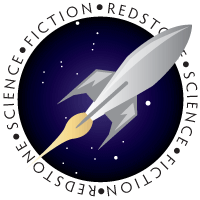




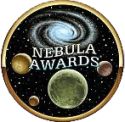
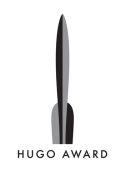
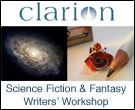


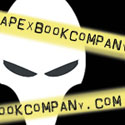
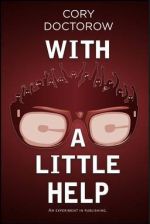
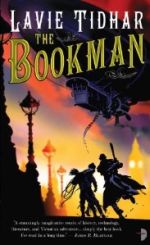



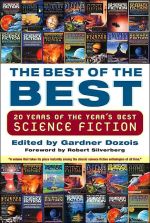


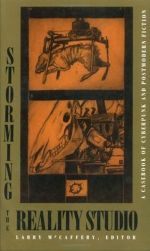



1 comment
[…] Five Questions with David Tallerman by Michael […]